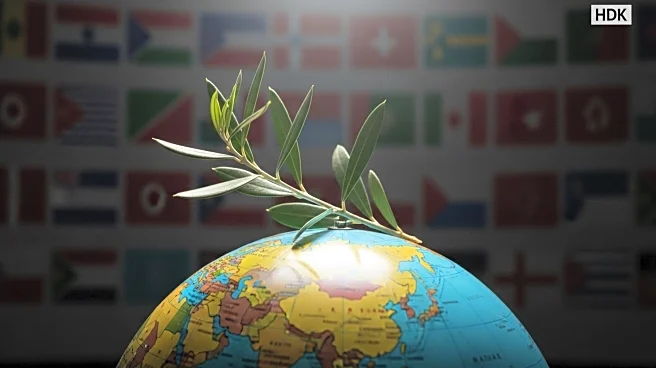What's Happening?
France has officially recognized the Palestinian state during the opening of a Saudi-French conference focused on the two-state solution. French President Emmanuel Macron announced the decision, stating that France will establish an embassy in Palestine once hostages are released. This move has been met with mixed reactions, with Palestinian leader Mahmoud Abbas pledging reforms, while Israel's ambassador to the UN criticized the decision as dangerous political theater. The recognition by France is expected to influence other countries to follow suit, potentially altering diplomatic relations in the region.
Why It's Important?
The recognition of Palestine by France marks a significant shift in international diplomacy, potentially influencing other nations to reconsider their stance on the Israeli-Palestinian conflict. This development could lead to increased pressure on Israel to engage in peace negotiations and address Palestinian demands. The move may also impact U.S. foreign policy, as it navigates its alliances and interests in the Middle East. Countries that align with France's decision could see changes in their diplomatic and economic relations with Israel, affecting trade and political alliances.
What's Next?
Following France's recognition, other countries may announce similar decisions, leading to a broader international acknowledgment of Palestinian statehood. This could result in increased diplomatic efforts to resolve the Israeli-Palestinian conflict, with potential implications for peace talks and regional stability. Stakeholders, including the U.S., may need to reassess their strategies and involvement in Middle Eastern affairs. The situation may also prompt reactions from international organizations and civil society groups advocating for peace and human rights.
Beyond the Headlines
The recognition of Palestine by France could have deeper implications for international law and the role of the United Nations in conflict resolution. It may challenge existing power dynamics and encourage discussions on the legitimacy and recognition of states under international law. Additionally, this development could influence cultural and societal perceptions of the Israeli-Palestinian conflict, potentially fostering dialogue and understanding between different communities.










